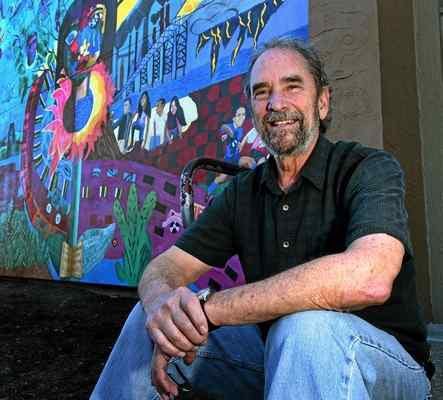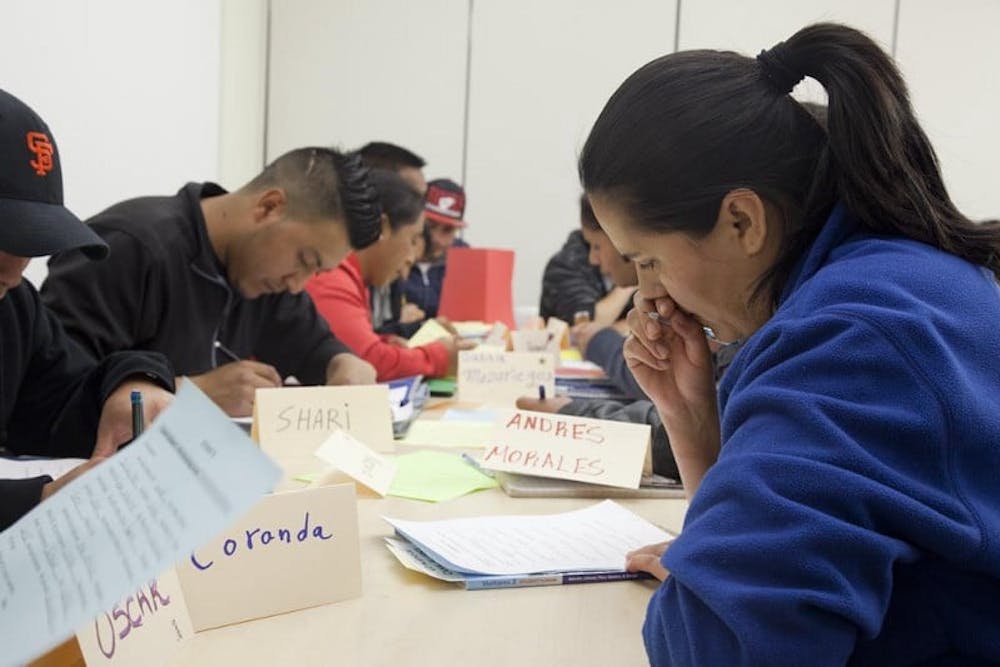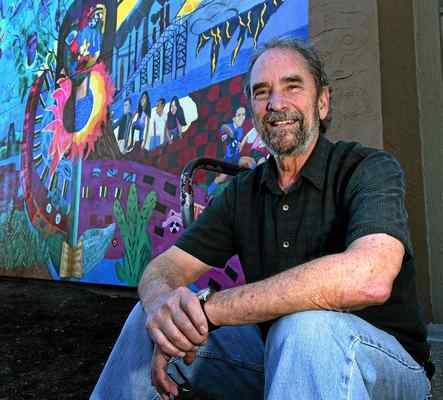A Quick Bite with Tom Wilson

Every month, we invite an inspiring leader or two from our grantee portfolio to join us in the Tipping Point Cafe. Our “Lunch with Leaders” series is an opportunity for our team to hear directly from those on the ground in the fight against poverty, to learn what they’re most excited about, and what keeps them hungry to do more.
The Canal Area of San Rafael is a two-and-a-half square mile area home to 12,000 people, 58% of whom live in poverty. Like other affluent counties, Marin attracts immigrants with the promise of a better life, but a stark opportunity divide persists. While the median earner in the Canal makes just $21,000 annually, five miles away in Ross, the median individual income is over three times higher.
Canal Alliance, a Tipping Point grantee since 2007, is a mainstay of support for immigrant families in the community. Every year, the organization reaches nearly 4,000 people with services ranging from mental health and legal support, to academic tutoring, English language and technology instruction. Executive Director Tom Wilson has led Canal Alliance for 24 years and is set to retire this December. We sat down with him to get his reflections on a long and meaningful career.
Q: How did you become interested in the social sector?
A: Experiences from my childhood led me into a life of service. My mother ran what I would call her own individual social program. She knew some people who couldn’t get out of the house, and she would buy groceries for them. She would take me with her to deliver them. As a kid, I also visited an elderly, homebound woman in my neighborhood almost every day. Mrs. Elliot lived alone, and before I went to visit I would ask my mother to call me in a half hour, because otherwise Mrs. Elliot would keep me there all afternoon just to have someone to talk to. These are things that made a big impression on me, and why it has been extremely important for me to be involved in helping others who have less than what they need to survive.
Q: How does your work with Canal Alliance relate to that early goal?
A: Our vision is that the country needs immigrants today, and has always needed them, because they become part of the fabric of the nation and the next generation of leaders. Many of those we serve arrive with an amazing set of skills and a lot of courage. They have made a commitment to give up their lives in another country and come here to make a new start against unimaginable odds. Our role is to get as many of these Americans as we can in a position to have control of their lives, and to be able to move ahead and thrive. In our mission statement, we talk about the tools needed to do so, things like fluency in English, a high school diploma and strong civic connections.
Q: How does your growing Youth Program fit in to Canal’s mission?
A: The goal of the youth program is to graduate students from four-year colleges. Because we have limited resources, we focus where we can make a difference. We support students who are in the middle academically — those earning Bs, Cs, and Ds when we start with them — who with the right support can graduate from high school. There are about 120 students in the program now, and we’re bringing all the newest students into the program when they’re in the sixth grade, so we can work with them all the way to graduation. Each of the students has an individual education plan, and we work closely with their schools. We also work with their families — in fact, we don’t just sign up students, we sign up the whole family. Even though we’re giving students some academic support, they’re not going to have a chance of making it without their parents supporting them. We have been pretty successful so far, with 41 of our students in college. We’re pretty proud of that.

Q: Are your challenges today different than in the past?
A: In 1992, probably 90% of our clientele was Mexican. They were fairly skilled and most of them had some education, in some cases up to high school. The economy really picked up in Mexico since then, and our government has managed to make things pretty hard on immigrants. We’ve seen many of those people return to Mexico. Now, 70% of our clients are Guatemalan. The country has been run by a succession of dictators and military generals, and life has been particularly difficult for the indigenous population who live mostly in small villages. Unlike Mexican immigrants, they speak an indigenous language, with perhaps some Spanish, but no English. They come with a whole different cultural perspective. So their needs are at a more basic level and we’ve had to change the way we support them.
Q: How has your relationship with Tipping Point helped?
A: At my first exposure to Tipping Point, I’ll never forget Daniel Lurie saying to me, “We get more involved than most funders do, so if that’s not something you’re interested in, then this probably isn’t the relationship for you.” That gave me pause; as an Executive Director, you usually don’t want people in your business. But it’s been different with Tipping Point. It has been truly a partnership, and a great partnership. We have both grown. Tipping Point has been there to help us do our work, measure our work, and develop a theory of change. We may have had ups and downs in the relationship, but Tipping Point has always been open to hearing from us and hearing from us honestly. So it has been a really healthy relationship. Tipping Point also has been great at connecting us with other possible resources and directing people toward us.
Q: As you get ready to retire, how has this work affected you?
A: It’s my own personal mission. It gives me great pleasure to see people able to take charge of their own lives and to be part of this culture and the society that they worked so hard to enter. If you are an immigrant or you know people who are, they come with the kind of openness that’s very, very touching. It’s always a blessing for me to see people who really want to be part of something and have their arms open. It gives me great pleasure to see the kids when they graduate from college. We have a milestone event to celebrate. They come up and tell their story. It nourishes my soul.
To learn more about Canal Alliance, visit its website: canalalliance.org.



